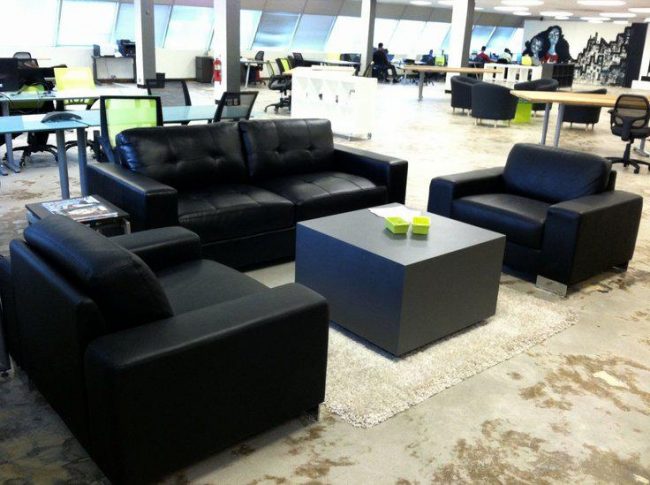
From being a fledgling concept focused around office solutions for startups, co-working has evolved into a disruptive innovation in the design and use of office space. After freelancers and startups, the latest to be drawn to co-working are small and large corporations who have traditionally maintained their own office spaces for hundreds, sometimes thousands of employees. Across the world, companies like Microsoft, IBM, Dell, Volkswagen, Barclays, Deutsche Bank, Samsung etc. have taken the leap into co-working. To partake in its benefits, corporations have moved up to several hundred employees to co-working spaces. Why are corporations drawn to co-working?
7 Reasons to Move into a Co-working Space with Your Startup
- Cultivate the ‘startup culture
- Lower Operational Cost
- Exercise Risk
- Access Strategic Locations
- Spot Trends, Monitor Disruptions
- Hire top talent
Cultivate the ‘startup culture’
Co-working spaces continue to be the preferred workspaces for startups at various stages of growth. The atmosphere is charged with people tackling problems of conception, design and efficiency in domains ranging from technology to education and agriculture to retail and hospitality, for instance. The downside of scale up to hundreds of employees, multiple locations and established customer bases is the loss of the go-getter, free thinking startup culture. Taking cognizance of this, companies are strategically planning for innovation. Budgets are set aside for incubation teams and co-working spaces provide a vibrant, diverse community in which to locate these.
Lower Operational Cost
Owning or leasing office space is a massive capital engagement. Besides, organisational time and money spent in setting up office amenities, hiring and managing security and house-keeping staff becomes unnecessary when co-working spaces can provide the same amenities at affordable cost. This allows organisations to focus all their strength towards core business interests. So if you have your office in Delhi or Mumbai or Bangalore, you can move into a business centre in Delhi or Mumbai or Bangalore and see for yourself how cost effective it is.
Exercise Risk
Corporations looking to expand into new markets, hire from new locations or set up pilot projects take advantage of the plug-and-play co-working model to quickly set up fully functional offices and up-scale or down-scale their operations as and when required.
Access Strategic Locations
Proximity to partners or customers is often a key driver of business growth. Competition can be beaten simply by being able to afford strategic locations. Even for corporations with considerable financial muscle, maintaining traditional offices on prime real estate is an unnecessary drain on resources. Co-working spaces allow affordable office solutions at prime locations.
Spot Trends, Monitor Disruptions
Corporations that are established players in providing a particular solution or in servicing a specific customer segment can easily be blindsided by the scale of their operations, thus failing to stay on the edge of emerging trends. Disruptions in one industry have a ripple effect in other industries. Co-working spaces are fertile ground for innovations towards next generation solutions. Sharing a workspace with small and large companies from diverse domains helps corporations keep an ear to the ground so that they can track innovation before it becomes an industry disruptor.
Hire top talent
With talented and successful freelancers and entrepreneurs flocking to co-working spaces, corporations looking to recruit top talent find it beneficial to locate a part of their employee base in co-working spaces. Interacting with diverse talent in a community environment allows senior management and HR to attract employees with the right fit.
Retain a workforce that values flexibility
Opposed to old-style workspaces that enforce office hierarchy and protocol, the new office-goer wants not to conform to an office environment but to adapt her environment to support her highest performance. The millennial demands more control on the way she works, where she works from and how she balances work with leisure. Not just ‘startup-types’ but the average employee in a large corporation also reports higher productivity from flexibility and corporations are recognising this as a factor in employee retention. visit our website